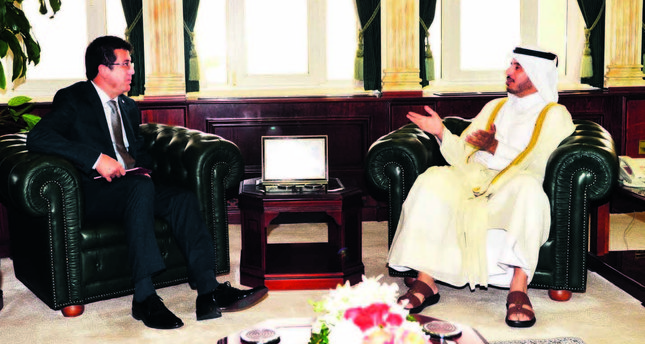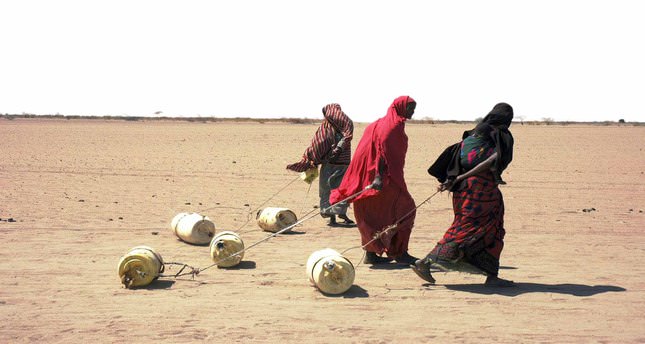QATAR TOP IN TURKEY'S ECONOMIC VISION
During a visit to the Gulf kingdom of Qatar, Economy Minister Nihat Zeybekçi said Turkey planned to invest $130 billion in its energy sector and $110 billion in its transportation sector, adding that Qatar was key to realizing this vision
- by Daily Sabah
- Published : 20.04.2014 22:55:26

Speaking at the Turkish-Qatar Business forum in Doha, Zeybekçi said, "In the next 10 years, we plan to invest $130 billion (TL 276.2 billion) in the energy sector, $110 billion in the transportation sector, more than $10 billion in information and communication technologies. And we have put Qatar in first place in our foreign economic vision. We will soon deliver good news to our Qatari brothers regarding much longer visas, residence permits and limitless residence permits."
Zeybekçi emphasized that he was pleased to be in Qatar and that there are brotherly and historic ties between Qatari and Turkish people. The Turkish minister said that economies such as Turkey and Qatar could direct the world economy in the new era.
"Qatar has made $774 million in foreign direct investment in Turkey until today. Turkish contracting companies have carried out 117 projects worth $13.5 million in Qatar. Qatar is a No. 1 partner in terms of cooperation, foreign economic vision and brotherhood and this will stay that way," said Zeybekçi.
Zeybekçi also said that Turkey is proud of the fact that Qatar will host the 2014 World Cup. Qatar's Minister of Economy and Trade Ahmed bin Jassim Al Thani underlined the importance of the relations between two countries and said, "We will make efforts to develeop these relations further. We agree on this subject. It is of great importance for the private firms to share their experiences. In accordance with our 2030 goals, we aim for a strong economy which will be able to survive without depending on natural sources."
Qatar will host the 2022 World Coup and Turkey is aiming to get Turkish companies involved in new projects in the country. The trade volume between Turkey and Qatar was $24 million (TL 51 million) in 2003.
Iron and steel products, electrical machinery and equipment, motor vehicles and parts, home textile products, furniture and food are among the main export items to Qatar. Natural gas, plastic products, chemical products are the major items which Turkey imports from Qatar.
Turkish investments in Qatar are mainly in the fields of consultancy services and contracting and sub-contracting. Qatar is one of the most important markets for Turkish business circles in the Middle East with huge natural and economic resources. The country offers lots of opportunities for Turkish exporters and contractors. This potential has attracted Turkish businessmen in the last decade and the trade relations between Turkey and Qatar have also developed in this period.
In order to complete the legal framework of bilateral commercial and economic relations, Turkey and Qatar have signed a number of agreements, including an Agreement on Enhancing Economic and Technical Cooperation, Bilateral Investment Promotion and Protection Agreement (2008) and the Double Taxation Prevention Agreement (2008). The Turkish-Qatari Business Council was also founded in 2006 in order to develop and enhance bilateral economic cooperation between both countries' business circles.
http://www.dailysabah.com/money/2014/04/21/qatar-top-in-turkeys-economic-vision











